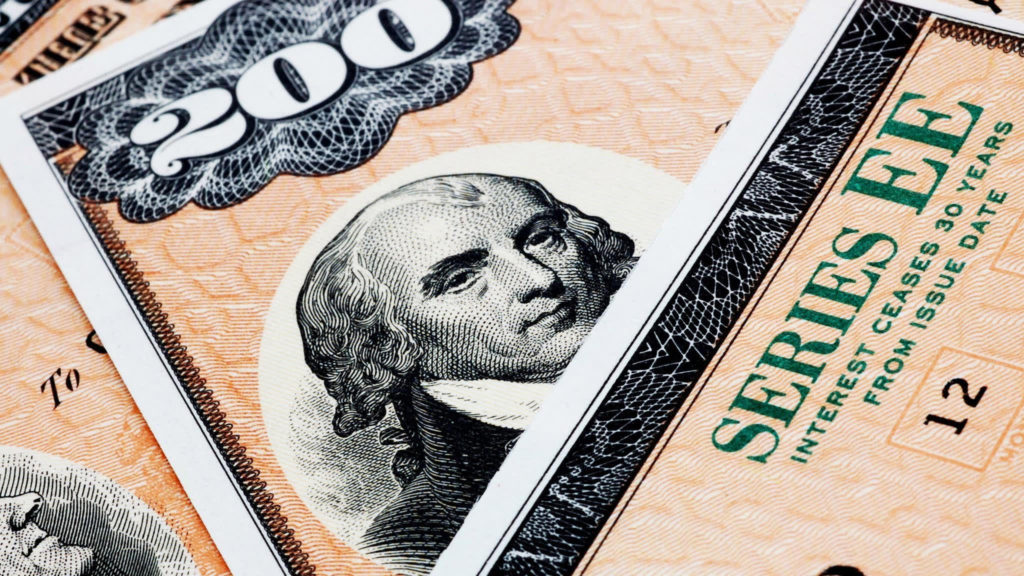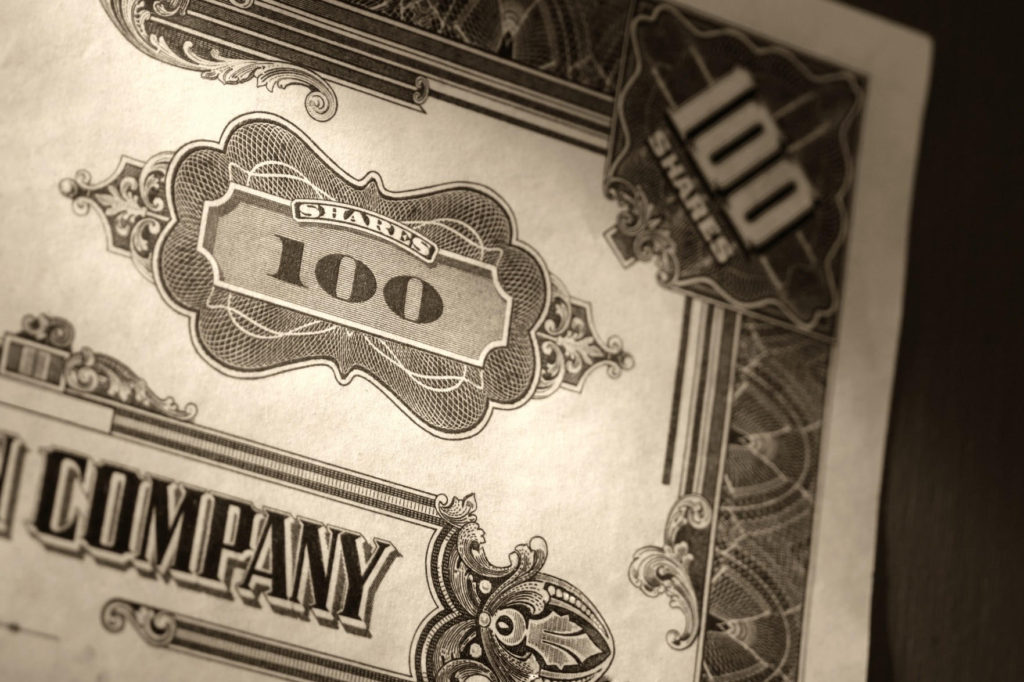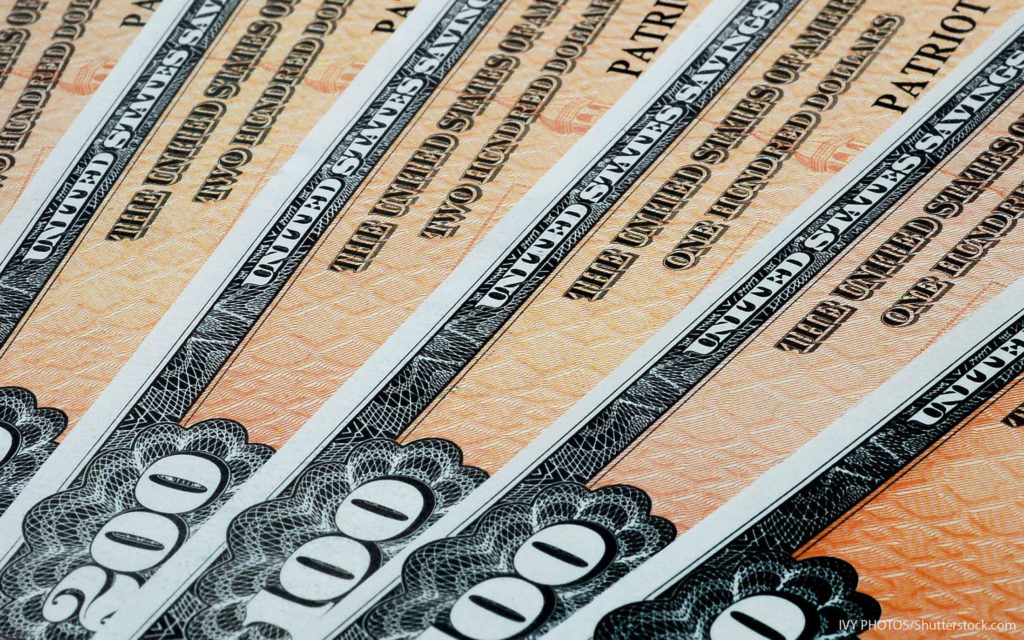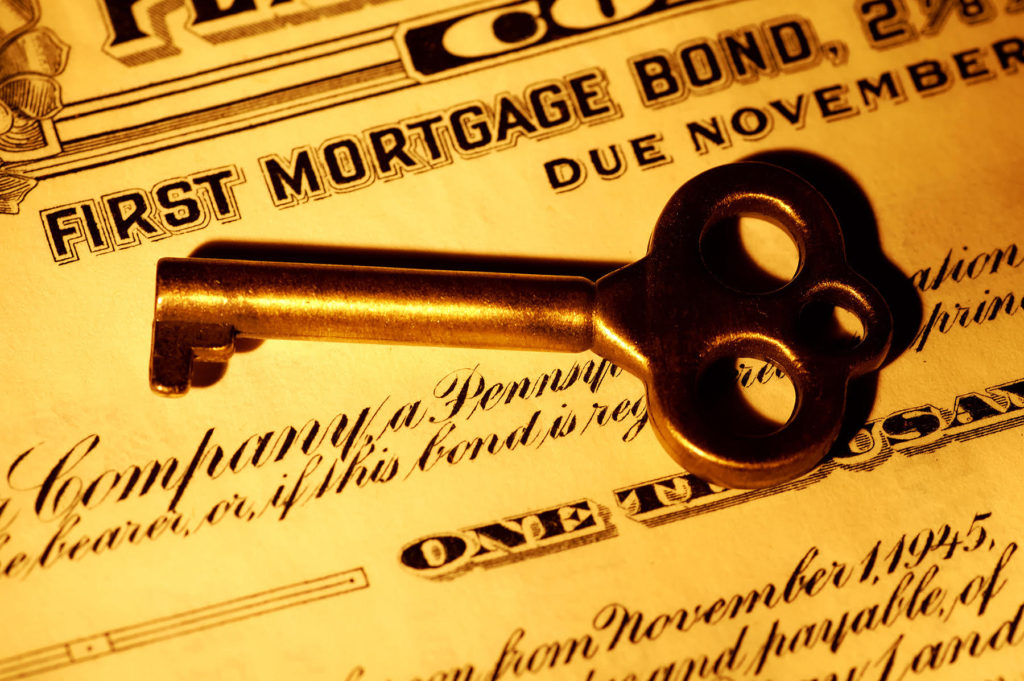
A while ago, we looked at whether you should invest in gold. Bonds are similarly a tricky business. Some people think you should invest in bonds, and others do not, so should you or should you not?
Bonds can come in several different forms, by far the most common are municipal bonds and corporate bonds. However, for the purposes of this article, the type of bond doesn’t really matter!
Reasons to Invest in Bonds
There are several reasons why you should invest in bonds, these include:
Steady Income
Each year, companies set their own dividend rate, with it fluctuating immensely year-on-year. One year, it may be 40¢, and the next, it may be 60¢, and the next, it may be 25¢.
The same can be said for real estate. The contract may say $750 per month, but after taxes, maintenance and other costs, you may only see $300-$600 per month, not including mortgage payments.
However, bonds don’t do that. Most bonds, whether municipal or corporate are fixed rate bonds, meaning that they never change, regardless of the economy. You will always get the same amount each year, to the day.
For the most part, most bonds are at a flat 3% rate, based on the face value of the bond (ie. 3% of a $100 bond is $3 per year). This is to be paid on the date of issuance each year (or close enough as possible).
This means that no matter what your stock/real estate holdings are doing during bull or bear markets, you will get paid. Even if the company is on the verge of bankruptcy, they can’t skip your payment!
Legal Protection
If a company you own shares in goes under, you lose your entire investment. Anything left after the company is liquidated (after all debts have been paid), you get a percentage of, based on the percentage of the company you owned.
The same is also true for bonds. However, as a bond is a form of debt, bond holders take precedence over shareholders. If the company goes under, you are actually have a better chance of getting your money back!
And if the administrators of that company decide to not give you the value of your bond, you and the other bond holders can take them to court. And unless there is something seriously wrong, you’ll probably win (Although, I’m not a lawyer).
Should the local government go into administration, you’re also protected. The state and/or federal governments will honor the bonds and either pay you or transfer the bonds into other bonds.
If the country itself collapses (which is rather unlikely, but does still happen) the World Bank will pay off the bonds. It nie on impossible to lose your money from bonds!
Diversification

Most investors buy different stocks, or real estate in different areas to diversify their portfolio. Even if one industry is down, it doesn’t necessarily have to mean that all of the industries will be down.
Diversification prevents your entire portfolio from being wiped out during a crash. However, you will naturally need to make sure that you are not over diversifying your portfolio by mistake!
Investing in bonds is one of the best ways to do that. When stocks and real estate are down, bonds tend to be up, when bonds are down, stocks and real estate tend to be up. It’s a win-win scenario!
This is also quite good as bonds generally have nothing to do with your stock and/or real estate holdings. Yes, you could buy stock in a company and then buy some of their bonds, but they are two completely different things!
As investors, we want to protect ourselves as much as possible. The best way to do this is to diversify, investing in bonds, alongside our stock and/or real estate portfolios.
Less Volatile
Most other investments are known for fluctuating wildly. A quick look at some of the largest companies’ stock prices will show that they fluctuate wildly, depending on the stock, it could be a fluctuation of thousands!
During a recession or a market correction, the prices of stocks in particular can crash down hard, before going up a little, down again, up again and whoever knows what else! The same is also somewhat true for real estate.
However, bonds aren’t really like this. Yes, bonds do fluctuate ever now and then, but not to the same degree that stocks do. Where stocks fluctuate over potentially hundreds, bonds fluctuate by only a few dollars either side.
A 30 year bond worth $100 will probably still be worth $100 in 30 years. If has changed, it’s likely to be $95-$105, whereas for a stock, it might be $40-$400, or maybe even more/less! More often than not, being just $100.
Even during recessions or market corrections, bonds are relatively stable, mostly increasing in value when stocks are down. When stocks are up, bonds are usually down, only trading for $1-$2 less than their face value.
It’s Tangible
Much like gold, and unlike stocks, a bond is a tangible asset. This means that no glitch or cyber attack can wipe it out. Assuming you don’t sell it, or it gets stolen, you’ll always have it.
Due in part to the digital age, many new bonds are becoming digital, having both a physical and digital bond certificate. It is generally thought that within the next few decades, all bonds will be electronically-issued.
However, this is not the case yet, so this is still true. It is generally thought that when this is introduced, you will get the option to have them solely-electronically or both, similarly to stocks and stock certificates.
To many investors, investing in tangible assets is one of the best investment ideas. Why is this, you may be asking? Security. Because it can’t be hacked, it provides an investor with an added layer of security.
Combined with some intangible assets like stocks, you have a double layer of security. It makes your investments portfolio incredibly secure, even if you invest more in stocks/real estate than you do in bonds.
Reasons Not to Invest in Bonds
There are several reasons why you should not invest in bonds, these include:
They Can be Damaged or Stolen
Because they are tangible assets, they can quite easily be damaged or even stolen. Even in the modern era, most bonds aren’t electronic (although they are going this way more and more).
As such, you will need to have somewhere to store them, be it an office/home safe or a safety deposit box in your local bank. However, neither are truly, 100% secure.
Your house/office can be broken into. When the thief breaks in, he/she is going to look for valuables. A safe is a perfect target. Many bonds are bearer bonds (whoever holds them, owns them), so the thief gets a fairly decent payday.
Likewise, a bank can be robbed, although banks design it to be extremely difficult (of course). If they are hit, safety deposit boxes are usually what they hit, with bonds (and gold) being among their favorite takes.
Your house/office can also burn down. Whilst you can purchase specialist fireproof safes, these are often more expensive than similar non-fireproof safes.
Then there is also wear-and-tear. A 30 year bond, regardless of where it is kept, is going to age. There is always a possibility that this age is going to damage the bond itself, making your investment all but worthless.
Default
Despite the fact that the municipal government or company who issued can’t skip paying you because they want to, they can (sort of) not pay you at all: Defaulting.
Essentially, if the company or municipal government is physically unable to pay you (ie. they don’t have the money) then they default on the debt. Depending on the entity, some will default and pay you back twice next time.
Other entities will default, struggle to pay you back and finally go into administration.
As you can imagine, those at a higher risk of default will have to pay more, in order to cover those costs. Whereas, those who are less likely to default, are more likely to pay less.
However, with that being said, you can find how likely a company/government is to default on its debts by using Standard & Poor’s (S&P) or Moody’s credit rating software.
Both S&P and Moody’s recommend that if you are going to be a solely-bond investor, that you should have a mixture of high and low risk bonds in order to cover yourself. Even a low risk bond can still default!
They Can be Forged

Just as how bonds can be damaged, they can also be forged. For you as an investor, this may not seem to be that much of an issue. However, when you think about it, it is a large issue for you as an investor.
Forgery is the process of taking something original and making a lifelike replica of it, with the intention of passing it off as the real thing. Naturally, this is a crime in most countries, with a hefty prison sentence.
In order to prevent this, bonds are designed with several countermeasures. However, this does not mean that these bonds aren’t able to be forged. Occasionally, both municipal and corporate bonds do get forged and cashed in.
As with most other things, each bond has a unique serial number. Most forgers need to buy a real bond (or several) in order to know its serial number and find the pattern.
Once they have finished learning everything they need, they cash in their bonds, or more often, sell them to a third party- you.
With that, and assuming the forger(s) are good enough, they can create hundreds of bonds, with corresponding serial numbers. If one of them is yours, your bond is essentially useless, until the authorities can prove otherwise.
Inflation
This is perhaps the biggest reason why I don’t invest in bonds. Inflation is a stock and real estate investor’s worst nightmare- it diminishes returns. But for a bond investor, it kills them.
Most bonds, whether corporate or municipal, don’t keep up with inflation. When you invest in a stock or real estate, the value of it increases year-on-year, but for a bond, this doesn’t happen.
Whatever you pay for the bond is what you’ll get at the end of it. Essentially, by investing in these bonds, these bonds are worth less, meaning that once you receive your money at the end, it is only worth a fraction of what it was previously.
Due to this, during periods of high inflation, bond prices are extremely low. This means that if you need extra money during this period, they are not only worth less because of inflation, their face value is less too!
Occasionally, during some recessions, the value of some bonds will also decrease, whilst others will rise. For this, there is almost no rhyme or rhythm to it, more likely its just the market itself!
Richest Investors Don’t Own Them
When you look at the most famous investors in the world: Warren Buffett, Charlie Munger, Ray Dalio, George Soros, Peter Thiel etc. none of them own any types of bonds.
Of the most famous investors ever, only Benjamin Graham has publicly said he owns bonds. In his 1949 book, The Intelligent Investor, Graham said that you should invest in bonds, mostly for security.
However, since then, most value and rule one investors have since abstained from investing in bonds. As a general rule, they’re focused on the long term, rather than the short term.
For almost 30 years, Warren Buffett has given interviews telling people that they shouldn’t invest in bonds. With that being said, Buffett does say that if you want extra security, short term bonds are the way to go.
As a general rule, each successful investor has their own major reason for not investing in bonds. Most of these are to do with one or more of the aforementioned reasons, but others are occasionally from personal experiences.
Should You Invest in Bonds?

There is really no right or wrong way to answer this. Most investors have a very clear and cut “Yes” or “No” answer. There are relatively few investors who have no answer whatsoever.
As a general rule, I would say that it depends on you and your situation personally. If you’re young and want to grow your portfolio, I’d say no. If you’re getting older and you want to preserve it, I’d say yes.
Let’s assume that you were the latter, I wouldn’t recommend becoming an all-bond investor (I say the same for bonds and real estate too!) If you are going to buy bonds, only let them take up a small percentage of your portfolio.
If I were to answer truthfully, based on my own experience as an investor, I would say that unless you are looking for that added layer of security, it isn’t worth it whatsoever. But then again, I am some random guy on the internet!
Personally, I have never bought any bonds, regardless of whether they are municipal or corporate. However, I know several bond investors. Some have done extremely well for themselves over the years.
On the other hand, I know ten times the amount who have been bitten by it. If you truly want to invest in bonds, you need to do a lot of research to find the right bond for you. This will go beyond the first page of Google.
Have you ever invested in bonds? Tell me in the comments!


